THERE’S a new hotel at Collaroy on Sydney’s northern beaches.
It cost $22 million, has 17 beautifully furnished rooms with terraces overlooking either the beach or tropical gardens, a sumptuous lounge area with a grand piano, a state of the art gym, a sports program, and a team of dedicated staff.
But Sargood On Collaroy is not a normal hotel. It’s the first of its kind in the world created only for people with spinal injuries, their friends and families.
Since it opened in March last year the pioneering resort has been dubbed “life changing’ by guests, because it means they can have a worry-free holiday just like anybody else.
Resort manager James Dakin said the 200 visitors so far — including a man who travelled from Norway — have been “blown away”.
“They’ve been in hospital, been in rehab, that’s behind them, the dark times, and suddenly there’s a building that doesn’t remind them they’ve got an injury.” - James Dakin
For most, he said being able to go on holiday was always a big struggle.
“There’s been a lot of horror stories,” said Mr Dakin.
“Booking the holiday is a huge prolonged process. “You’re not just trying to find a place with available dates, but is it accessible, truly accessible, not just a room with a rail on the wall where you can’t get the chair into the bathroom?” he said.
“Then how’re they going to get there? Can they fly? They usually have a lot of equipment to bring so that often rules flying out.”
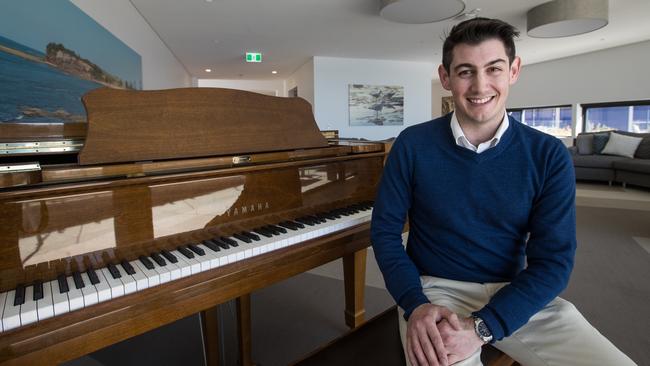
Mr Dakin said in some instances people were forced to order a hospital bed to be delivered to the hotel — at their own cost.
“And it may mean ordering a hospital bed to be delivered to the hotel, at their own cost.
“The difference here is we provide all of that. They don’t need to bring any equipment.”
How this hotel changes lives
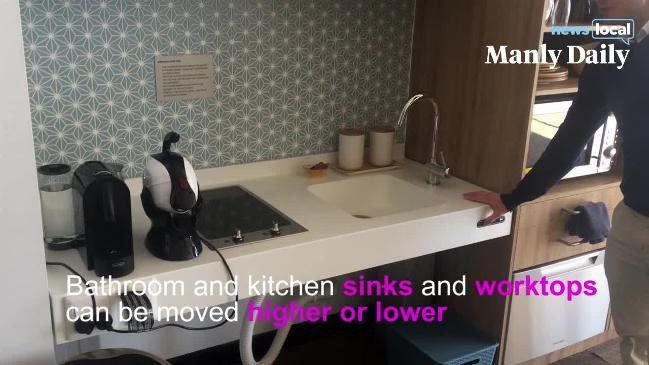
The people who use the resort aren’t sick or dying. Most are in wheelchairs, while others have limited mobility, and it might be their arms that are paralysed, as well as their legs.
Some have recovered from their injury as much as they’re going to, while others are still having therapies to help them get functions back.
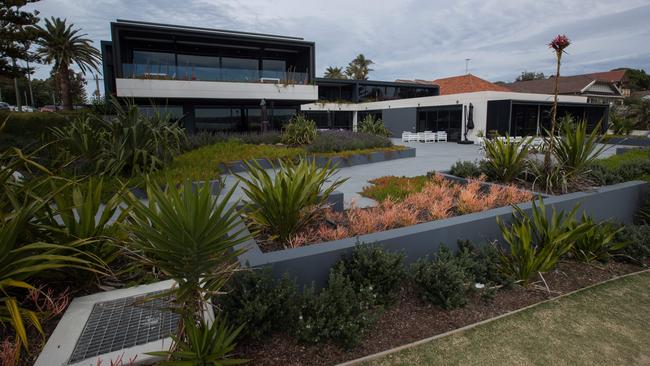
And, while they can continue working on that with specialist staff, the main aim of their visit is simply to enjoy themselves by the sea.
While the rooms look like any other a modern hotel, subtle features make a huge difference.
Many windows are at wheelchair height, there are no annoying little steps to stall wheels and sinks are height adjustable.
The showers are big enough to even fit a bed trolley inside if needed. Toilets have sensor flushes for people who can’t use their hands, and even the kettles and coffee machines have been specially chosen.
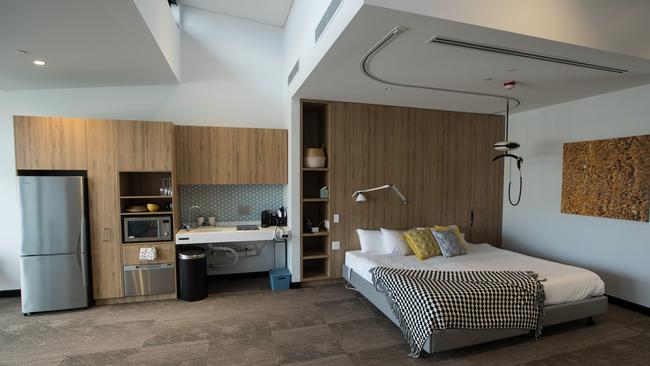
It’s small things like this guests have said means they can feel “normal”.
“One man hadn’t been able to make his wife a cup of coffee for five years, since his accident,” said Dakin. “He was so excited to be able to.
“They’ve been in hospital, been in rehab, that’s behind them, the dark times, and suddenly there’s a building that doesn’t remind them they’ve got an injury.”
Stays cost from $300 a night but with added care can add up to much more, though some guests qualify for funding or charity help which allows them to stay for free
Former Sony managing director Darren Houghton, 49, no doubt stayed in a few luxury hotels as part of his job in the global entertainment company’s division which makes and distributes CDs and DVDs.
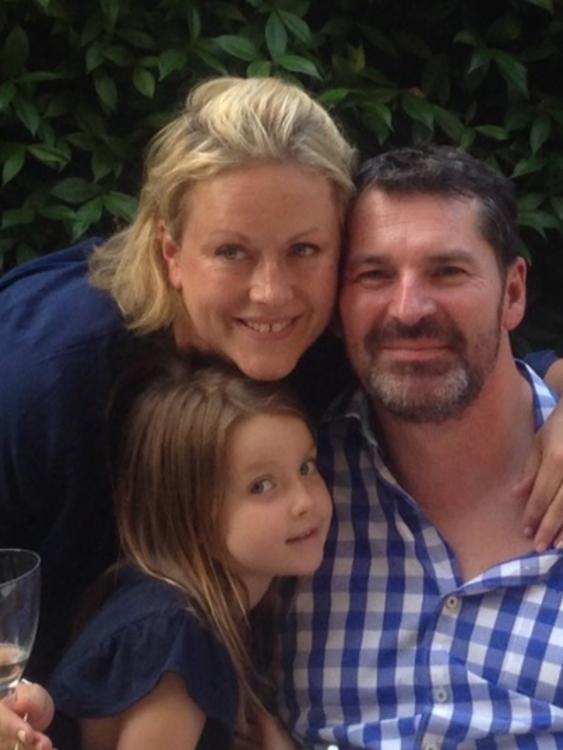
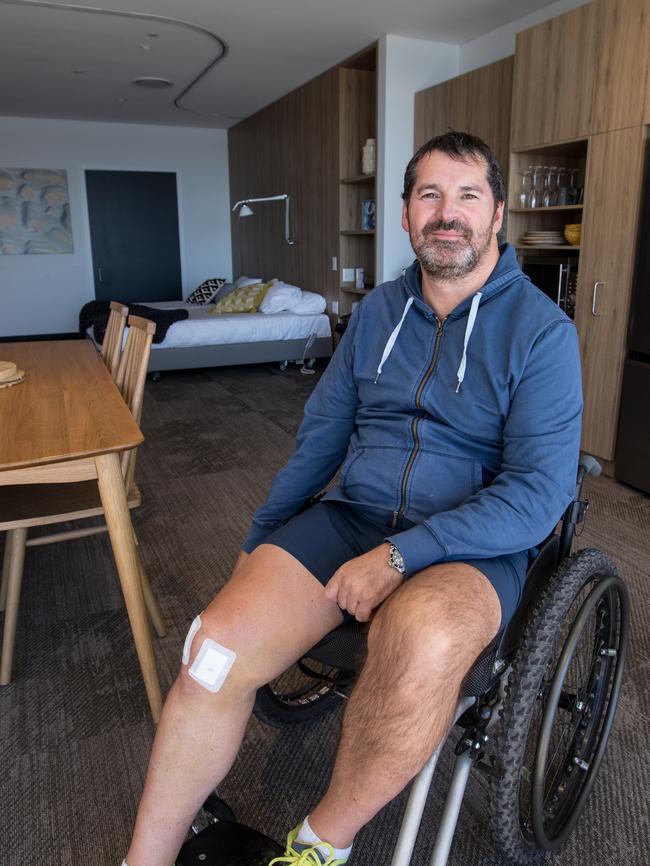
But he calls Sargood on Collaroy “a complete life changer.”
A freak accident on December 28, 2014, left him an incomplete quadriplegic and meant he had to say goodbye to the dream job he moved his family over from the UK for.
He fell backwards over the balcony at the Fairlight home he was renting with wife Jo and daughter Martha, seven, and broke his neck.
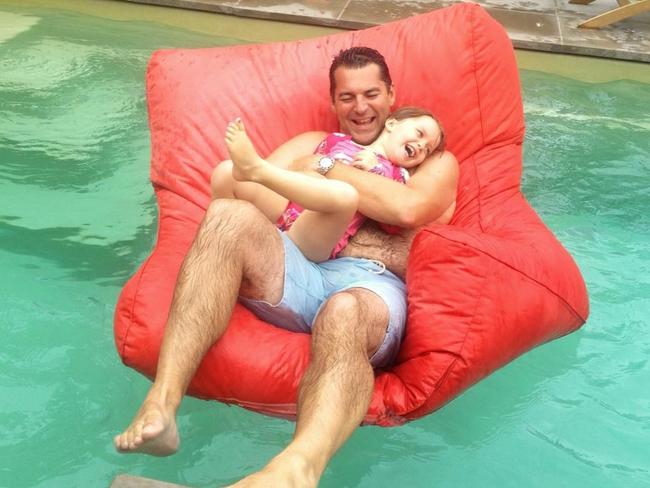
He was told he had be paralysed from the neck down, and was in hospital for almost nine months, where he almost died, twice.
“I just stepped back and the balcony was a little bit low, and it caught me, just under my bottom cheek, and that was it,” he said.
“I fell off, backwards, it was only about 2½ metres but underneath there was a corrugated roof.
“I went onto that and broke my neck.”
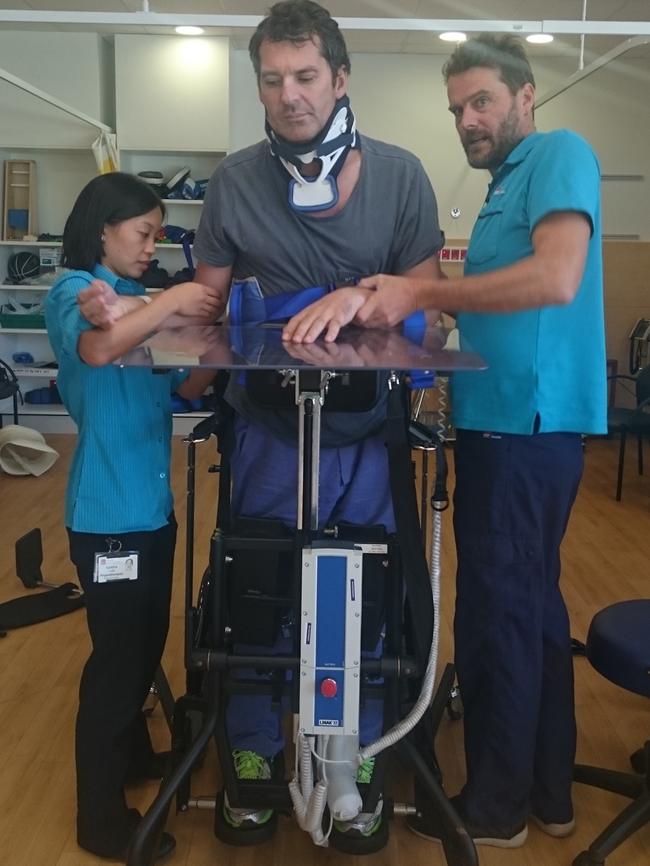
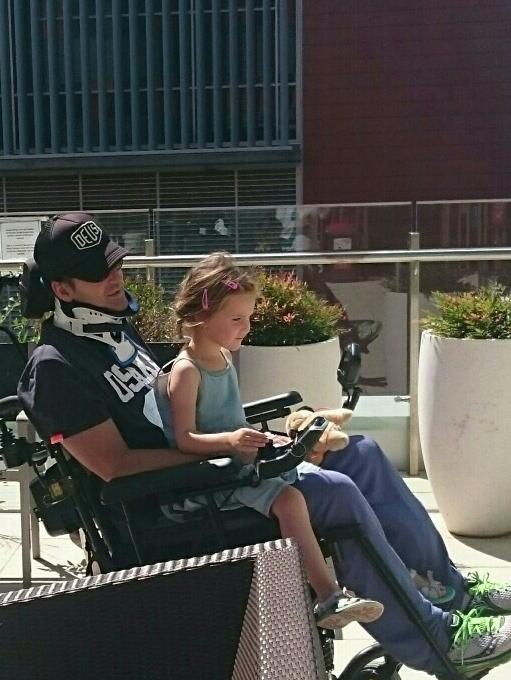
Determined, Mr Houghton — who now lives at Narrabeen — pledged he would walk again for Martha’s fifth birthday and he defied doctor’s expectations to take a few steps, with the help of a walking frame.
Now 2½ years later he can walk about 100m. His right arm remains paralysed.
“This is completely incredible. Now I can go surfing with a bit of help, cycling, and just interacting with people. It’s been a complete life changer.” - Darren Houghton
He can use his left a little, but things like getting dressed himself are impossible.
“I can’t get dressed, I can’t put on shoes, that’s the hardest bit and what people don’t realise,” he said.
“One of my targets early on was to be able to pick a take away coffee cup up.
“I went to the rugby with a load of my friends in April 2015, they were giving me beers with a straw. They said ‘unless you can drink properly next time, we’re not taking you with us ...’
“I can now hold a beer in my hand,” he said, laughing.
Little Martha and even the family dog, Bob, have also been to visit Sargood with him.
And while Mr Houghton now pops over during the day, he has stayed here too.
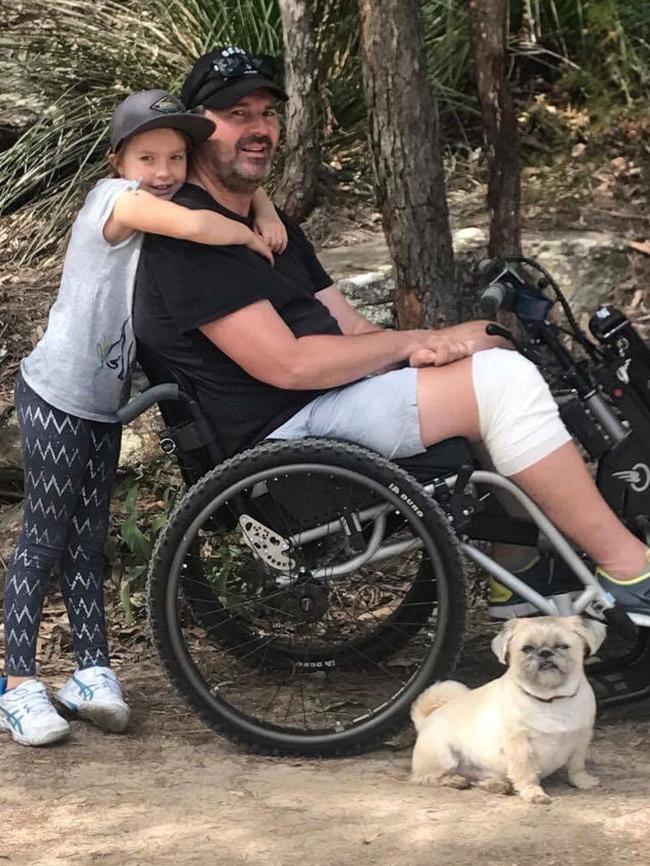
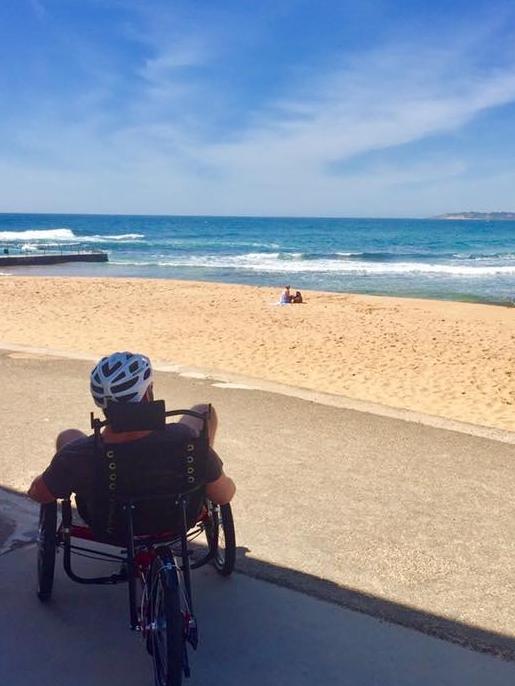
The only holiday the family has been on since his accident was a cruise and, while ships cater for people with disabilities, his wife still had to take care of most of his needs, unlike here where help is at hand.
“This is completely incredible,” he said.
“Now I can go surfing with a bit of help, cycling, and just interacting with people. It’s been a complete life changer.”
Darren Houghten is paralysed after a balcony fall
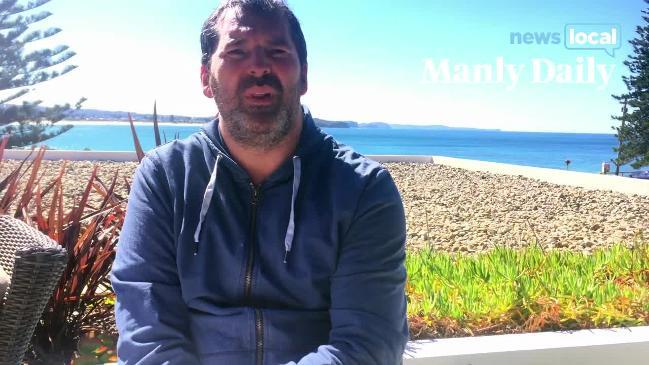
Surfing is something Mark Leslie, 30, hadn’t done since he was 17, when a rugby accident while training at Oakhill College in Castlehill left him quadriplegic.
But thanks to the centre — he’s another day visitor as he lives in the suburb — and adaptive sport and recreation specialist manager Seb van Veenendaal, he’s been able to feel the thrill of catching a wave again.
He can lie on a normal surfboard, which has a motor.
“It’s awesome, to have that feeling again it’s pretty cool, and especially to be able to do it independently is amazing,” said Mr Leslie.
“When Sargood opened here my independence increased tenfold. It’s taken a while but I’m doing everything I used to do. I don’t feel disadvantaged being in the chair.”
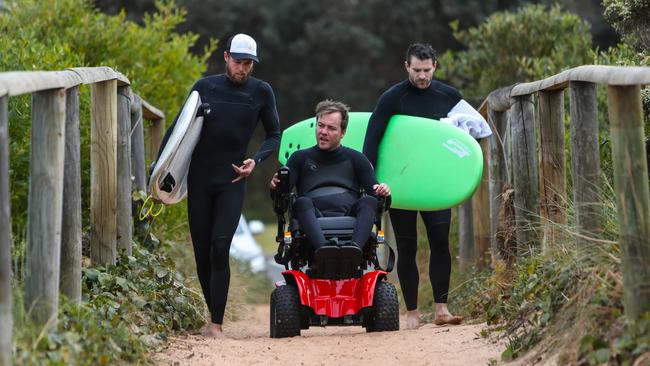
Mr van Veenendaal, 30, from Redfern, said it’s not just about getting guests involved in sports on holiday, but also equipping them not only with new skills but with confidence that will last far longer than a week.
Cycling on hand bikes around Narrabeen Lagoon, adapted golf at Long Reef fishing — including with drones — and snorkelling at Cabbage Tree Bay are just some of the activities.
“We took one guy a few months ago who had never been snorkelling pre or post injury and after 20 minutes he was swimming on his own,” Mr van Veenendaal said.
“For people to be able to come and have a holiday and enjoy that holiday and not having to sit on the sidelines ... much of what we do is working with guests to make their stay as good as possible but also working on skills they can take home.”
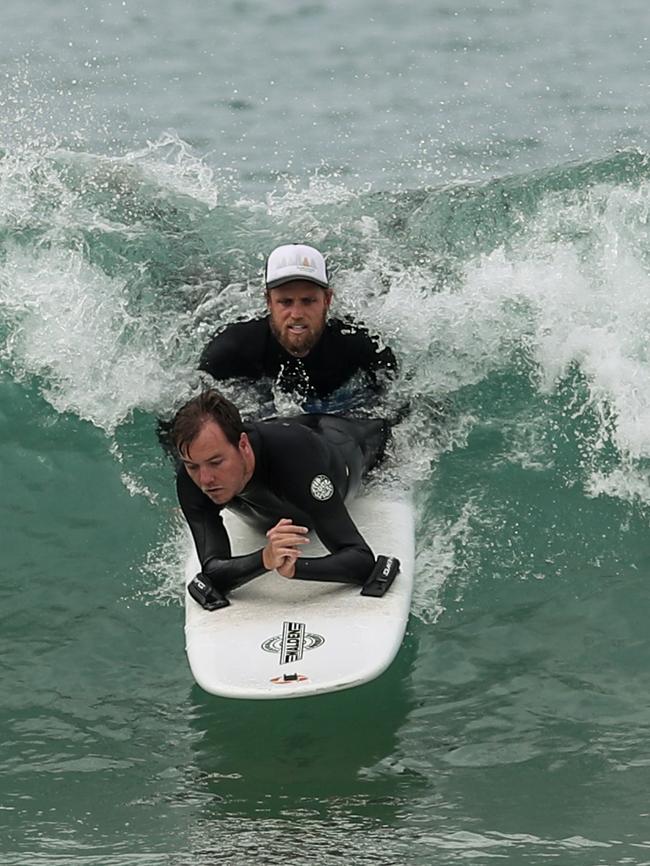
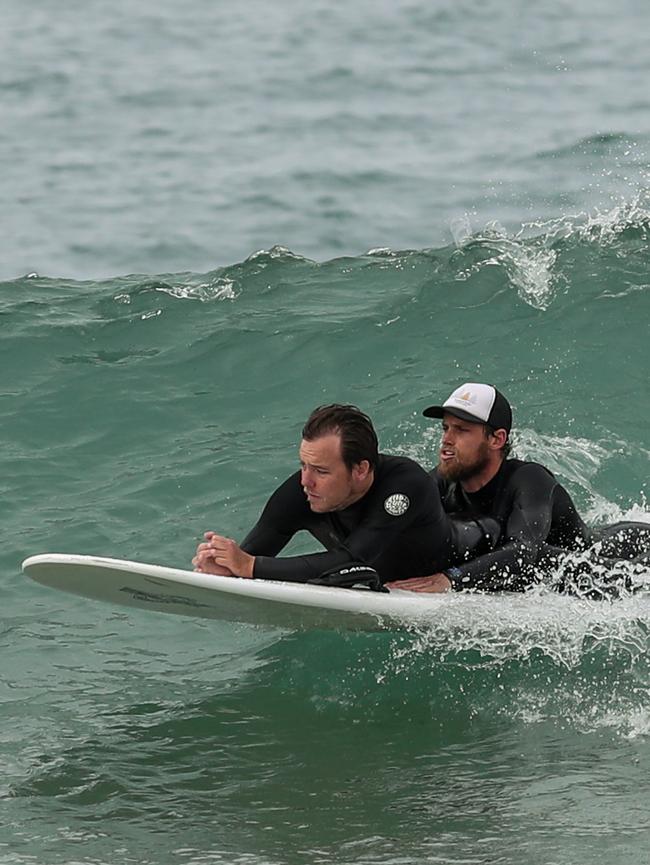
Mark Leslie is able to surf again
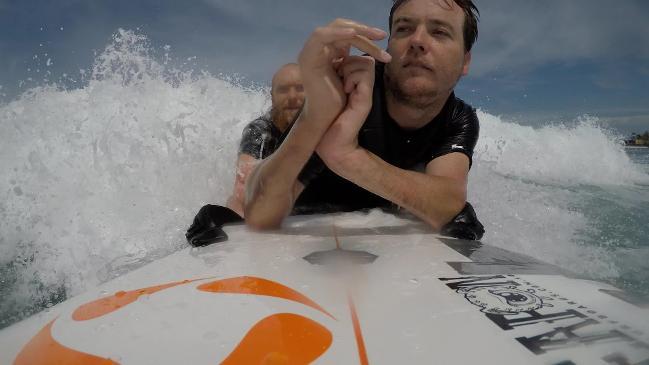
Terri Frizzi, 49, from Wyong on the Central Coast, who’s has been stayingwith husband Mick, 54, admits she was scared as her week-long trip approached.
She became paralysed from the waist down just three years ago after a gym accident.
She fell from a cargo net and landed on her chest, breaking her T11 and T12 vertebrae and stretching and compressing her spinal cord.
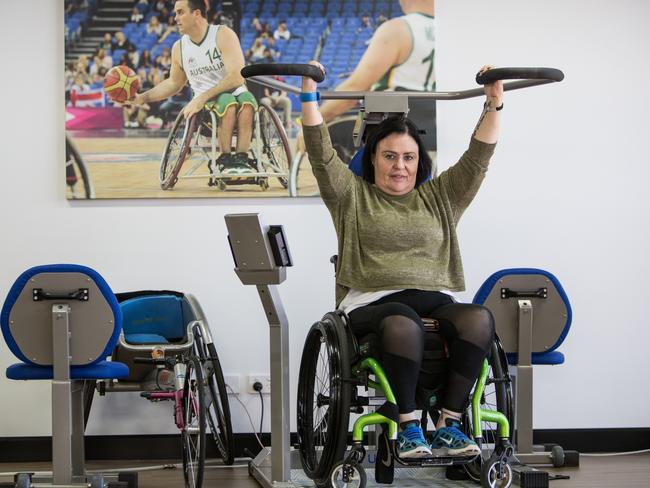
She feared the resort would have a clinical atmosphere. She was very wrong.
Mrs Frizzi’s already planning her next trip, a girlie weekend, just like any other mum and daughter.
“There would be a lot of laughs that week,” she said.
“Because everyone’s in a wheelchair, it’s normal. I say to my husband he’s on my turf now.”
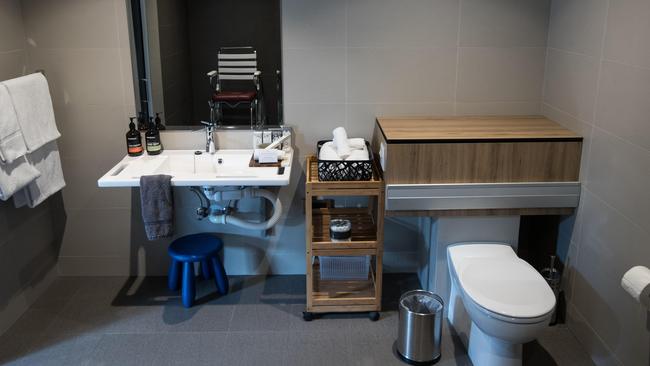
The mum of three, who’s about to become a grandmother for the fifth time, said it has removed the usual issues they faced not only when they’ve gone away, but also everyday at home.
But even getting here wasn’t simple. The lift at the station wasn’t working, and they had to ask staff for help.
Here, it’s a world away and anything seems possible.
“Everything’s so easy here. It gives me that week of de-stressing. I love it.”
Terri Frizzi is thrilled with the resort
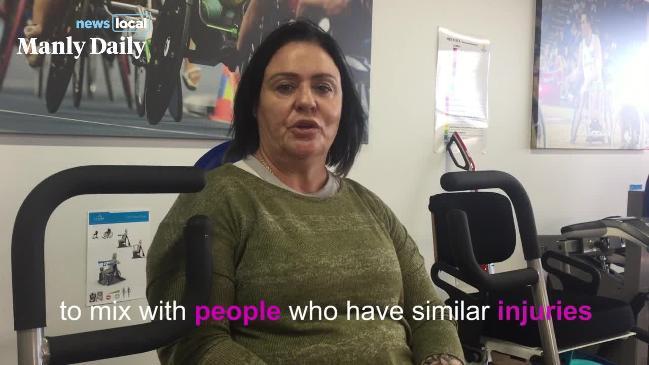
The couple said they were only able to visit because their National Disability Insurance Scheme paid for the trip, which she estimated to cost at least $2800.
During their stay they cycled to Long Reef on hand bikes and were planning to take buggies on the beach.
Greg Hulton, 58, from Collaroy takes regular holidays to cabins and caravan parks in Australia, has driven round American for six months on his own and worked in jobs from company management to running a cattle farm.
That’s despite losing the use of his legs 36 years ago in a motorbike accident.
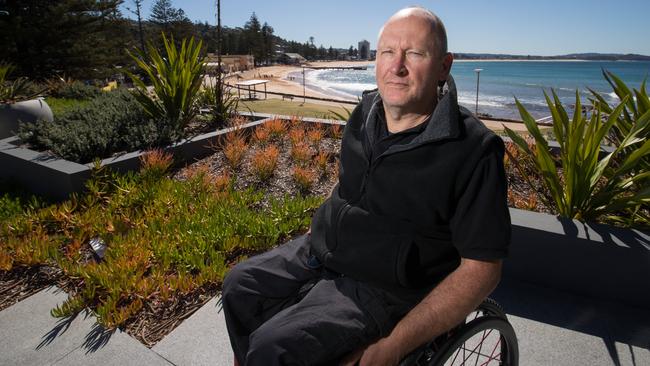
Mr Hulton lives just up the road from the new hotel and visits for yoga every week.
He said he wishes the place existed back in 1981 when he had his accident.
The former auto electrician was riding from Manly to Forestville on a Sunday afternoon to help friends clean their pool.
“I can remember seeing the guy on my left. I wasn’t doing anything silly, I was just in a line of traffic,” he said.
“I don’t remember him hitting me, but he came through the stop sign. I can remember veering out of control across the road, and the last thing I remember is there being a telegraph pole ... the next thing I remember after that is being face down on the road.”
“I was probably unconscious about 30 seconds. I had this weird feeling that all my feeling was flowing out through my toes, not being able to move and not being able to breathe either.”
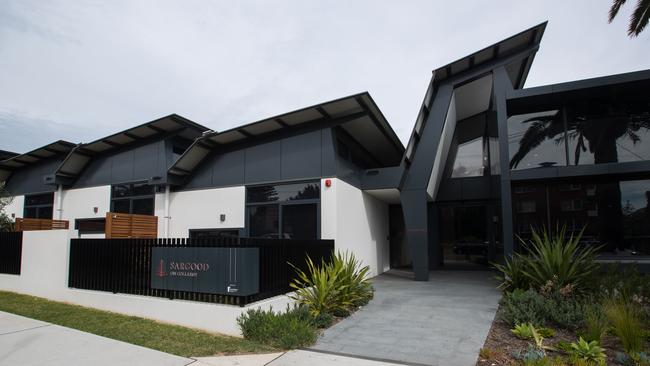
Mr Hulton had fractured T4-T6 vertebrae and severed his spinal cord.
He’s accustomed to the challenges faced by wheelchair users like himself, especially when it comes to travel.
He was once given an “accessible room” in a San Francisco hotel but the bathroom door wasn’t wide enough for a wheelchair.
“What I have discovered is your view of wheelchair access is very different,” he said.
“The concreter guy putting in the ramp, say, puts a lip on it, and thinks ‘that’s not going to bother anybody’ ... well it does.”
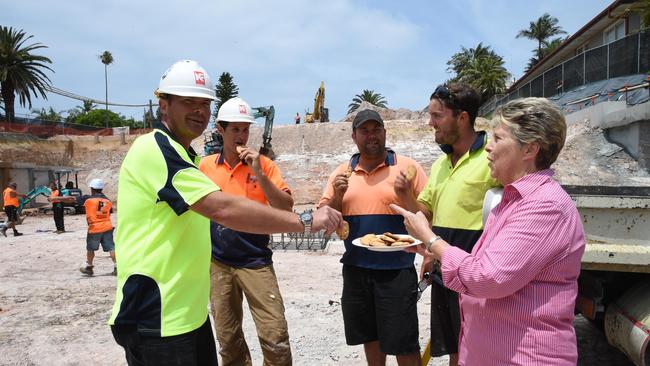
Carolyn Butcher, a neighbour, hands out snacks to workmen at the site as it was being built.
SARGOOD ON COLLAROY HISTORY
■ The site was bought by Frederick Sargood in 1916 as a beach house.
■ It later became a home for returning servicemen and a children’s hospital, before being given to NSW Disability Services.
■ The Sargood Foundation, formerly the Collaroy Community Group, was formed to preserve the site’s use as a place of healing.
■ Sargood started working on the resort concept in 1999.
■ Funding came from the foundation, government organisation Lifetime Care and Support Authority (iCare) and a private foundation.
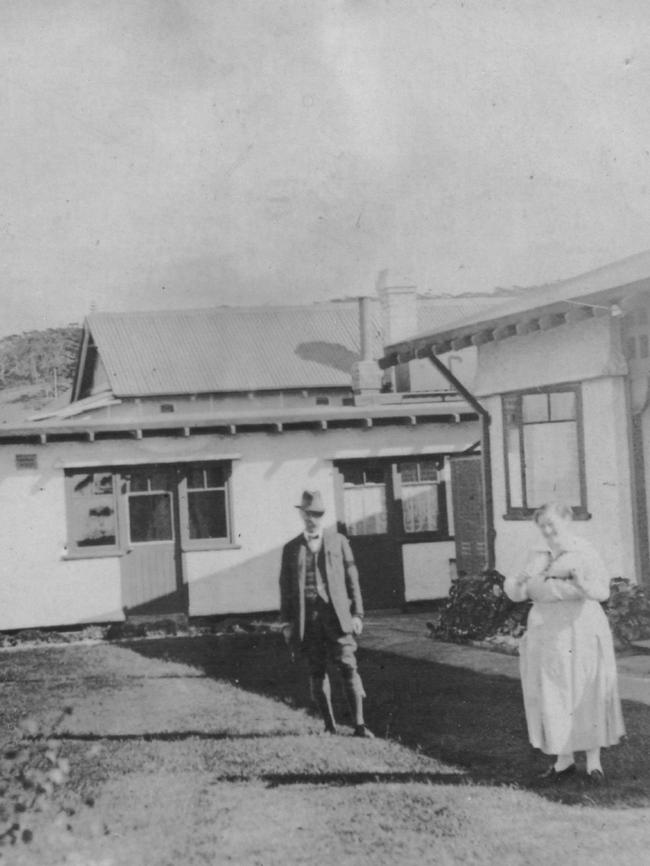
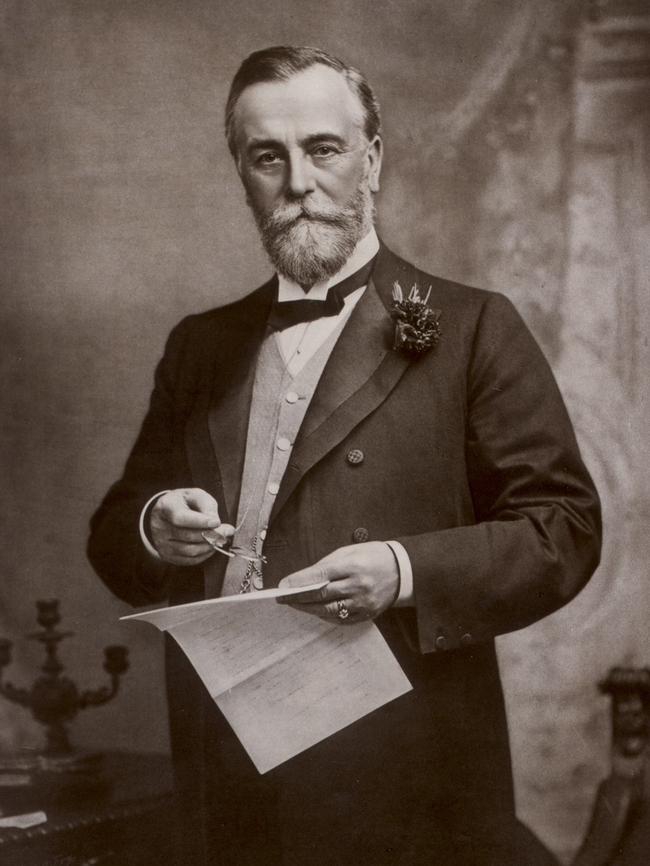
■ It opened in March 2017.
■ There are 17 rooms in the building, which has won an architecture award.
■ Open only to people with a spinal injury, but they can bring family or friends.
■ Guests have ranged from children as young as seven to people in their eighties — there are three, two-room family suites.
■ One guest has travelled from Norway, most others are from NSW and other parts of Australia.
■ The average stay is six nights.
■ It cost $22m and has between five and 20 staff depending on occupancy, including medics and a recreation therapist.
■ Stays cost from $300 a night, though some guests qualify for funding or charity help which allows them to stay for free.

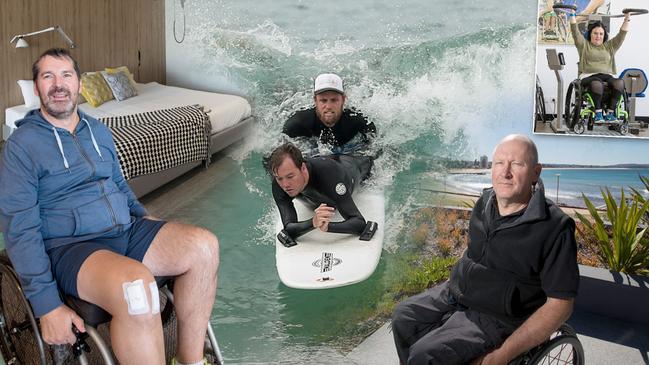
Add your comment to this story
To join the conversation, please log in. Don't have an account? Register
Join the conversation, you are commenting as Logout
Here’s what you can expect with tomorrow’s Parramatta weather
As summer moves towards autumn what can locals expect tomorrow? We have the latest word from the Weather Bureau.
Here’s what you can expect with tomorrow’s Parramatta weather
As summer moves towards autumn what can locals expect tomorrow? We have the latest word from the Weather Bureau.